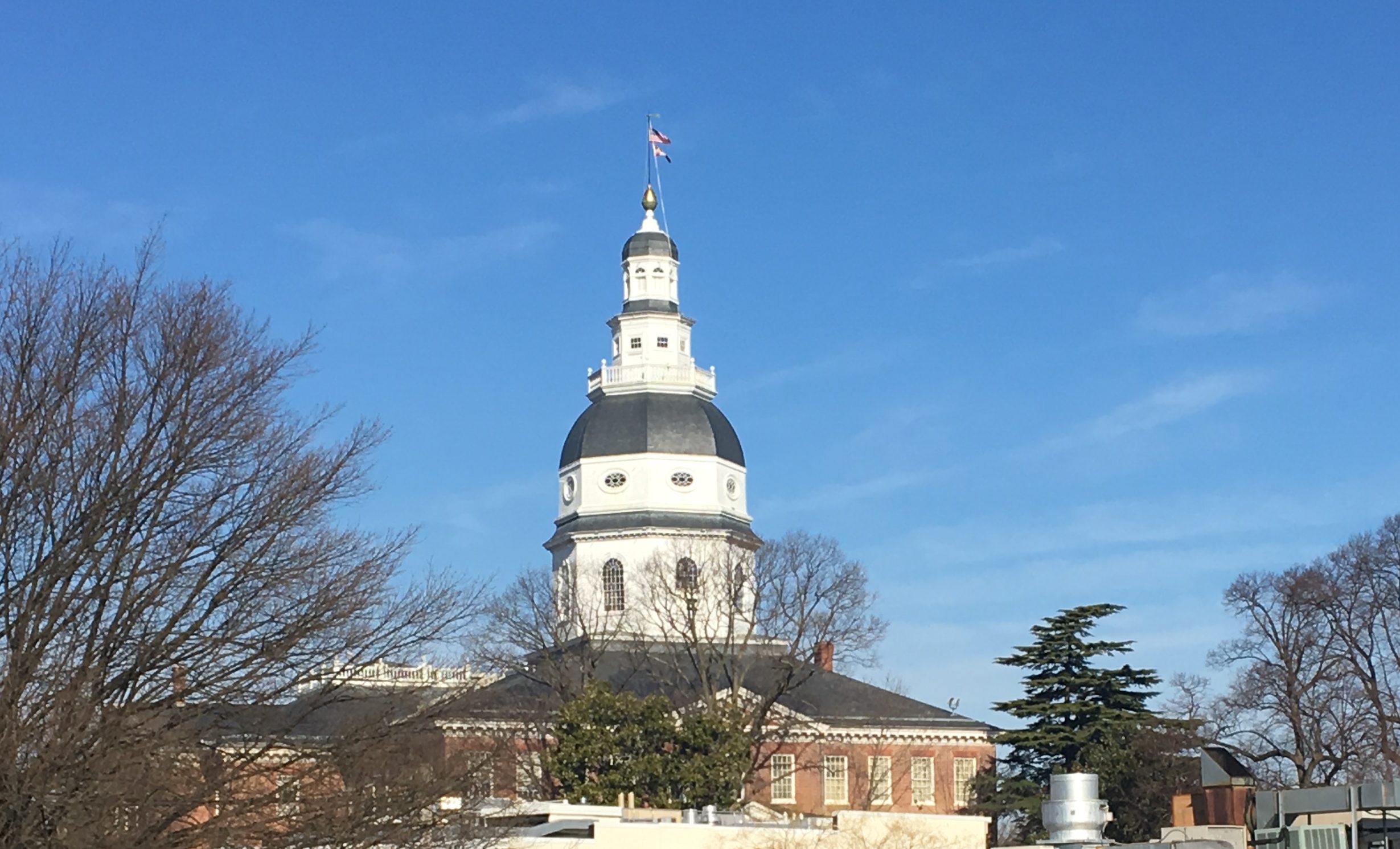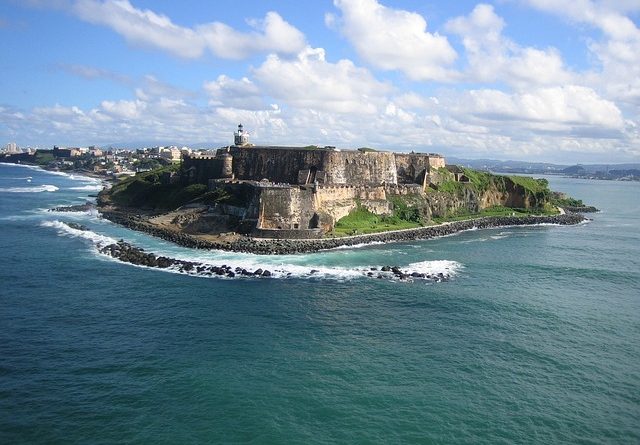Lawmakers try again to set a vote on Puerto Rico’s status
By RYAN MERCADO
WASHINGTON – A coalition of senators, House members and prominent Puerto Rican politicians is pressing Congress to pass legislation that would set a vote on the future of the island territory.
“It’s been more than 100 years since Puerto Rican residents became U.S. citizens … well over 300,000 Puerto Ricans have served in our nation’s military,” Sen. Martin Heinrich, D-New Mexico, sponsor of the Senate bill, said last week. “I think we should all agree that Americans living in Puerto Rico deserve an overdue permanent and democratic answer on their political status.”
The Puerto Rico Status Act authorizes the island territory of over 3 million residents to hold a federally-binding referendum to choose among three options: statehood, independence, or sovereignty in free association with the United States.
Heinrich’s bill is companion legislation to a House bill introduced in April by Rep. Raúl Grijalva, D-Arizona, Rep. Steny Hoyer, D-Maryland, and Resident Commissioner Jenniffer González-Colón, R-Puerto Rico.
“For far too long, the people of Puerto Rico have been deprived of the self-determination that they and all people deserve,” Hoyer told Capital News Service. “We owe it to Puerto Ricans to bring an end to their island’s 124-year-old status as a U.S. territory and to grant them control over their island’s political future.”
As House majority leader, Hoyer brought a bill to the House floor in December 2022 to set a status vote for Puerto Rico, it passed the House but was not considered by the Senate.
“I remain committed to working with Puerto Rico’s elected officials and community leaders to ensure that the people of Puerto Rico have full autonomy and democratic control over their status,” Hoyer said.
Sen. Chris Van Hollen, D-Maryland, is among 21 other senators co-sponsoring the Senate measure.
“The United States is grounded in the principle that every citizen has the right to self-determination and representation in government,” Van Hollen told CNS. “While we are always working to reach this ideal, one way we continue to fall short is in denying the people of Puerto Rico these core American rights.”
Puerto Rico has been an American territory since 1898 when the United States acquired the island during the Spanish-American War.
The island’s residents are U.S. citizens but do not enjoy some of the same rights as residents of the 50 states, such as voting for president. Puerto Rico’s resident commissioner serves in the House but does not have voting powers.
Critics say the territorial status has often resulted in Puerto Rico not receiving ample attention or much-needed aid when natural disasters strike, most notably when Hurricane Maria struck the island in 2017.
“When I go to some parts of Puerto Rico that are without power in the wake of natural disasters, I say if this happened in Connecticut, there’d be riots in the streets,” said Sen. Richard Blumenthal D-Connecticut. “It is unfair and unjust for the people of Puerto Rico to be treated as second-class citizens. Colonial status must end.”
The latest congressional effort to get a vote on Puerto Rico’s status faces strong headwinds: nine previous bills and resolutions dating back to 1998 previously failed.
Puerto Ricans have voted in six referendums since 1967 on the issue of their political status. The past three referendums in 2012, 2017, and 2020 showed a majority support statehood, but the issue faces partisan roadblocks in Congress, which ultimately decides if the island can become a state.
When the issue was voted on in the House in December of last year, the vote was 233-191. All Democrats but only 16 Republicans voted in favor of allowing Puerto Rico to vote on its future. The bill died as a new Congress was sworn in a month later.
In the first 70 years of American independence, debates on admitting new states to the Union revolved around whether they would be slave states or free states. Today, that debate is focused on whether a new state would be a Democratic or Republican state and send delegations representing those parties which could flip the balance of power in the House or Senate or both.
Senate Minority Leader Mitch McConnell, R-Kentucky, said in 2020 that statehood for Puerto Rico and the District of Columbia was part of the Democrats’ “radical” agenda. McConnell and other Republicans believe admission of the two would send four Democratic senators to Washington, giving the Democratic Party a powerful advantage in the closely divided Senate.
Senators at last week’s press conference rejected that argument.
“Oftentimes when states come in and everyone assumes they are always going to be Republican or they are always going to be Democrat and then the voters prove themselves to be independent,” Heinrich said. “We’ve seen that with Hawaii, we’ve seen that with Alaska and I think this is about being true to the will of the people.”
The senator acknowledged that the path from territory to state can be arduous.
“It took us 50 New Mexico statehood bills to get there – many, many decades before we finally became the 47th state of the United States,” Heinrich said.
Some senators said they had constituents deeply interested in the future of Puerto Rico.
“We are home to more than 288,000 Connecticut residents of Puerto Rican descent, the highest density of Puerto Rican heritage anywhere in the country,” said Sen. Chris Murphy D-Connecticut.
The sponsors see the legislation as the best attempt yet to bring the issue of Puerto Rico’s future to a resolution.
“This bill is a compromise between members of the House that sit on different sides of the question of final status, but who agree that now is the time to make that decision,” Murphy said.
Puerto Rico Gov. Pedro Pierluisi said the 22 senators on the bill was “the highest number of original co-sponsors in history.”
“That bodes well for our fight for equality,” said the governor, who faces a challenge from González-Colón in next year’s Progressive New Party gubernatorial primary. The PNP is pro-statehood.
Besides Hoyer, cosponsors on the House Puerto Rico bill include Maryland Democratic Reps. David Trone, Jamie Raskin and John Sarbanes.

Capital News Service is a student-powered news organization run by the University of Maryland Philip Merrill College of Journalism. With bureaus in Annapolis and Washington run by professional journalists with decades of experience, they deliver news in multiple formats via partner news organizations and a destination Website.

